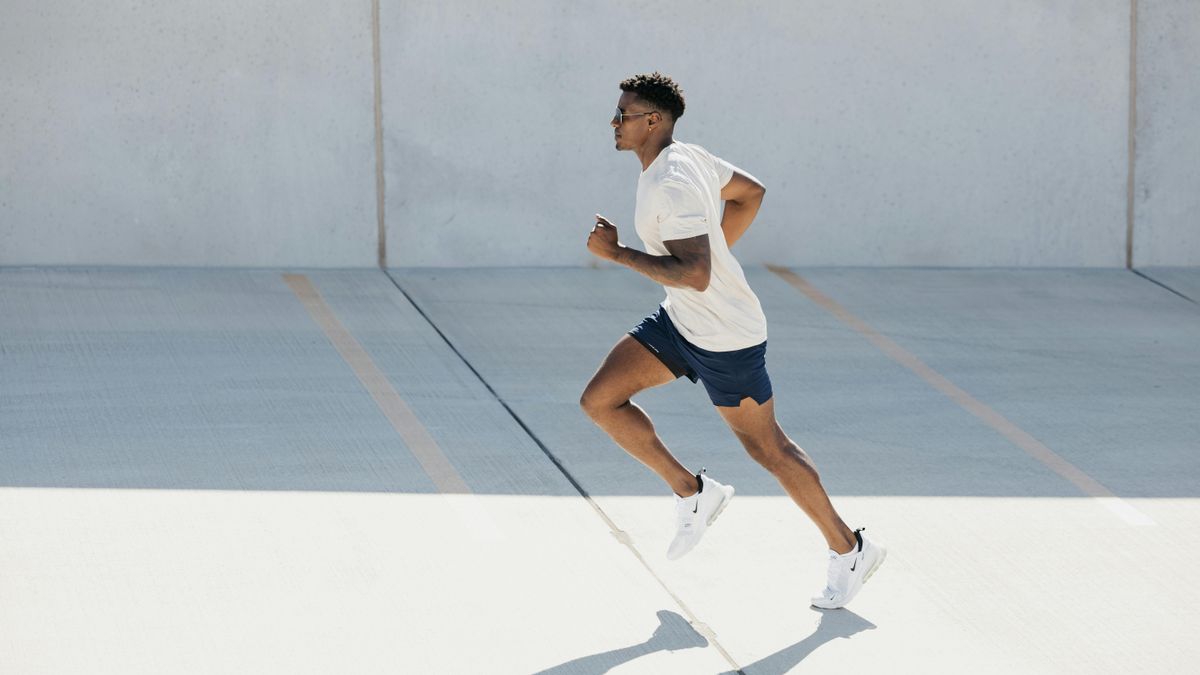Coenzym Q10—how it supports your health and how to optimise your intake

Have you ever caught yourself yawning midday and wondering, “Where on Earth did all my energy go?” Well, there’s a chance Coenzyme Q10—often shortened to CoQ10—might be part of that conversation. Picture CoQ10 as your body’s tiny assistant, hustling behind the scenes to keep cells energized and shield them from harm (though, to be fair, the science is still evolving). Below, we’ll explore the basics of this fascinating compound, how it supports your health, and how you might work it into your daily life—without going overboard.
What exactly is CoQ10?
CoQ10 (sometimes called ubiquinone) is a nutrient that’s mainly found in your mitochondria (think of these as your cells’ power plants). It’s basically a big player in creating ATP, the energy currency of our bodies. But there’s more: CoQ10 also happens to be a potent antioxidant that helps defend your cells against free radicals—those unruly molecules that can damage DNA, proteins, and cell membranes. It’s like having a built-in bodyguard, although, admittedly, not an all-powerful one.
Why do we need it?
- Energy production: CoQ10 helps ferry electrons around in the mitochondria, enabling ATP formation (i.e., the stuff that keeps our muscles moving and our brains thinking).
- Antioxidant power: By neutralizing free radicals, CoQ10 might reduce the oxidative stress that has been linked to heart disease, neurodegenerative disorders, and, you know, the general wear-and-tear of daily life.
- Age and medication factors: Our natural CoQ10 levels can decline with age or when taking certain drugs (like statins). That means some folks turn to supplements to keep levels up—though whether this is essential for everyone is still a topic of debate.
Where do you get CoQ10?
Food sources
Despite its scientific-sounding name, CoQ10 is actually present in many everyday foods:
- Organ meats (liver, heart): A powerhouse of nutrients, organ meats boast some of the highest CoQ10 concentrations. Not everyone’s cup of tea, but still.
- Fatty fish (salmon, tuna, mackerel): These varieties contribute notable amounts of CoQ10, plus healthy fats to boot.
- Meat, nuts, seeds: Muscle meats (beef, pork, chicken) and plant-based snacks (like peanuts, pistachios, or sesame seeds) add moderate CoQ10 to your diet.
- Spinach and broccoli: These veggies won’t drown you in CoQ10, but they contribute a fair share—plus a host of other vitamins and minerals.
- Oils (olive, corn, soybean): Frequently used in cooking, these oils also contain CoQ10, though not in sky-high amounts.
Supplementation
Sure, you might get enough CoQ10 from a balanced diet if you’re a big fan of organ meats and fish. But not everyone loves liver on toast, and that’s okay. Enter CoQ10 supplements, which come in several forms (soft gels, capsules, tablets, and so on). People often seek these out to address:
- Statin-related depletion: Statins, commonly prescribed for high cholesterol, can reduce CoQ10 in the body, prompting some doctors to suggest supplementation.
- Age-related declines: Because our natural CoQ10 levels may slip as we get older.
- Chronic health concerns: Heart issues, migraines, or certain neurodegenerative conditions (like Parkinson’s) sometimes nudge folks toward exploring CoQ10.
Potential health perks (with a side of caution)
Researchers have taken a keen interest in CoQ10 for several reasons, though the verdict can be a bit mixed—like a patchwork quilt of promising findings and inconclusive data. Let’s look at some highlights:
- Heart health:
- Some studies connect CoQ10 supplementation with improvements in heart failure management and blood pressure. It might help energize cardiac cells and combat oxidative stress in the cardiovascular system.
- Still, not every study has shown dramatic benefits. So, proceed with optimism and a dash of skepticism.
- Migraine management:
- Lower CoQ10 levels have been linked to an uptick in migraine headaches. Taking supplemental CoQ10 may lessen how often these headaches occur or shorten their duration.
- The effect size varies person to person, so don’t skip your migraine prescriptions without a doctor’s go-ahead.
- Neurological protection:
- Because of its antioxidant punch, CoQ10 appears promising in certain neurodegenerative disorders (like Alzheimer’s or Parkinson’s). It’s thought to protect neurons from damage and shore up mitochondrial function.
- Early research is encouraging, though more controlled trials are definitely needed before hailing CoQ10 as a new silver bullet.
- Diabetes support:
- A handful of small studies hint that CoQ10 might help balance blood sugar levels or improve lipid profiles.
- Larger, longer-term research is crucial to nail down whether these effects are real and clinically meaningful.
- Skin health:
- Skincare aficionados might notice more products touting CoQ10. The antioxidant properties could help fend off UV-induced damage and signs of aging.
- Remember, topically applied CoQ10 vs. oral supplementation might act differently—one size doesn’t fit all here.
CoQ10 supplements: a quick primer
Forms and absorption
- Ubiquinone vs. Ubiquinol: Ubiquinol is often labeled as the “more bioavailable” version, especially for older adults. Some feel it’s worth the extra cost; others are fine with standard ubiquinone.
- Dosage: Typical daily intakes range from 30 mg to 200 mg. Higher doses (like 400 mg or more) appear in some studies, but it’s wise to consult a healthcare professional before experimenting with bigger amounts.
Where to get CoQ10 supplements?
When it comes to sourcing food supplements, plenty of reputable companies exist, each with its own unique spin on quality and formulation. Names like
- edubily
- NOW Foods
- Nature Made
- Sunday Natural
- Solgar
- and Thorne
are often cited for their commitment to ingredient purity and rigorous testing methods, although standards can vary across the board. You might also stumble upon Garden of Life, Jarrow Formulas, or Life Extension, which emphasize transparent labeling, third-party certifications, and sometimes even non-GMO or organic seals. Of course, it’s smart to dig a little deeper into manufacturing practices and customer reviews if you want to be absolutely sure a particular brand aligns with your health goals. After all, supplements are only as good as the care and science that go into making them—and, you know, how they fit into your overall lifestyle.
Safety and Interactions
CoQ10 is generally seen as safe and well-tolerated, with rare reports of mild side effects (like upset stomach or headaches). However:
- Medication interactions: Blood thinners, insulin, and certain chemotherapy drugs might not play nicely with CoQ10.
- Pediatric use: The data is still thin regarding children, so medical advice is key if you’re considering CoQ10 for a youngster.
- Consistency Counts: Taking your supplement with a meal—especially one containing some healthy fats—can help boost absorption.
Research roundup
To be honest, the literature is a bit all over the map. Some robust meta-analyses suggest CoQ10 helps in conditions like heart failure and fatigue. Other research is less convincing, showing mild or no benefit in certain scenarios (e.g., some psychiatric disorders). In my own social circle, I’ve heard glowing reviews from a friend dealing with chronic fatigue—yet another acquaintance said they noticed zero difference. So it’s not a guaranteed homerun, but it might be worth discussing with your doctor if you have a relevant condition.
Cooking and preparation tips
Yes, you can get CoQ10 from real food - if that’s your thing. Here’s how to keep it as intact as possible:
- Opt for gentle cooking methods: Baking, grilling, or sautéing tends to preserve CoQ10 better than boiling. Imagine a sizzling pan of beef liver with onions or a grilled salmon fillet - both potentially rich in CoQ10.
- Plant-based picks: If liver isn’t in your top five favorite foods, legumes (like lentils), nuts, and seeds can help bolster CoQ10 intake for vegan or vegetarian diets.
- Pair with healthy fats: This nutrient is better absorbed when fat is present, so drizzle some olive oil or toss in some avocado to amp up absorption.
Final thoughts
CoQ10 stands at the intersection of energy metabolism and antioxidant defense, making it a nutrient of keen interest for anyone curious about heart health, brain function, or plain old vitality. While many studies point to potential benefits, others are inconclusive or show only modest gains—so we’re still unraveling the full story.
If you’re thinking about boosting your CoQ10 through diet or supplements, consider checking in with a healthcare professional first. After all, no single supplement (or miracle pill) can outdo a balanced lifestyle that includes nutritious meals, regular exercise, adequate sleep, and stress management. In the meantime, keep an open mind and remember: science evolves, and so should our approach to well-being.
References
Author: Fabian Peters
Nature lover, health enthusiast, managing director and editorial director of the health portal Heilpraxinet.de




